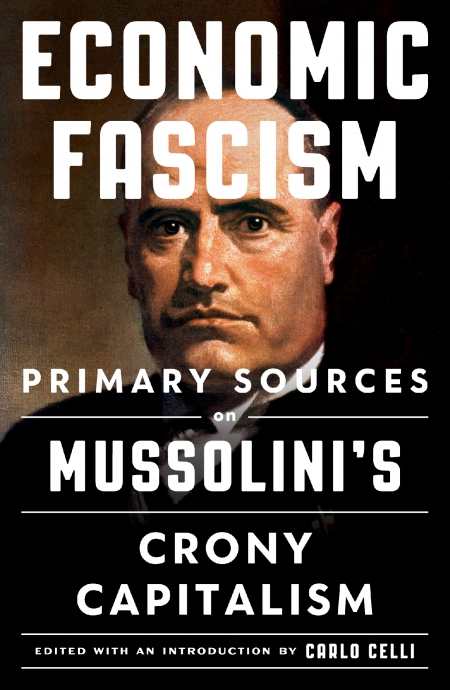
Economic Fascism
Primary Sources on Mussolini's Crony Capitalism
In the language of Mussolini and his compatriots, often rich and absorbing, these documents open a window into world economic history.
Economic Fascism: Primary Sources on Mussolini’s Crony Capitalism, edited by Carlo Celli, a professor at Bowling Green University in Ohio, is an intriguing book but has a title that is seemingly disconnected from its content. The book consists of a collection of speeches and other documents written or influenced by Benito Mussolini during the period 1912 to 1944. Arranged chronologically, these documents give a brief but fascinating overview of the intellectual side of Fascism as it was created, developed, and implemented in Italy.
Celli offers these documents on Fascism, one in each chapter, with an introduction consisting of a short paragraph and including abbreviated footnotes at the end of most chapters. The footnotes explain historical events and personalities, expanding on the Italian-to-English translation. Lengthier introductory material between each chapter would have added much needed context for most readers.
While addressed in passing in the introduction, a more thorough explanation of where and how each document originated and a description of the manner in which the translation was affected would add to the book’s value.
These limitations notwithstanding, Economic Fascism makes available to English-language readers important historical documents of great interest to students of Italian and/or economic history. The language of Mussolini and his compatriots is often rich and absorbing. In a speech in 1934, Mussolini explains the new economy he is attempting to build: “It is no longer an economy aiming at individual profit, but an economy concerned with collective interests.”
Unfortunately, there is a two-pronged disconnect between the title and the content. First, the reference to “Crony Capitalism” is never fully explained. Neither in the introduction nor in the remainder of the book does Celli defend his observation that Fascism amounted to crony capitalism. Second, in the description of the book on the back cover, there is this statement: “Prior to World War II, many of Mussolini’s policies were admired by progressives such as economist John Maynard Keynes and President Franklin Roosevelt.” There is no further evidence to support this contention. If the purpose of Economic Fascism is to brand liberalism, as practiced by Roosevelt and Keynes, as fascist, it is unconvincing.
Celli has built a useful window into a period of history whose events and theories still move current political thought and discussion.
Reviewed by
John Senger
Disclosure: This article is not an endorsement, but a review. The publisher of this book provided free copies of the book to have their book reviewed by a professional reviewer. No fee was paid by the publisher for this review. Foreword Reviews only recommends books that we love. Foreword Magazine, Inc. is disclosing this in accordance with the Federal Trade Commission’s 16 CFR, Part 255.
